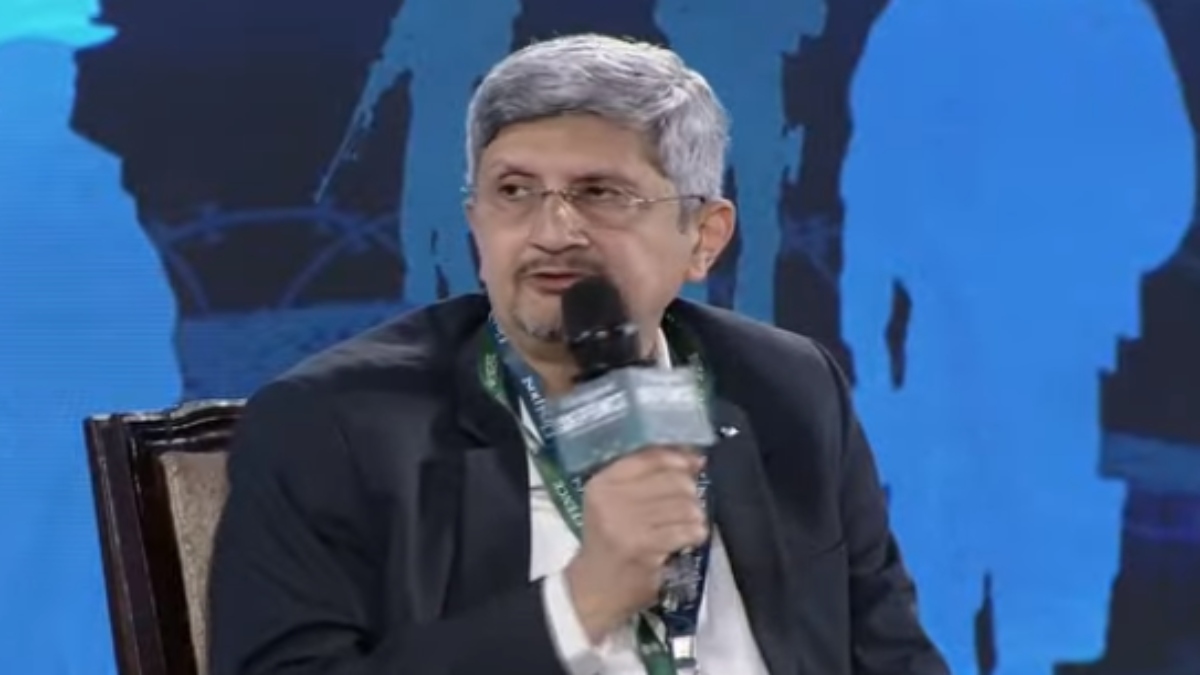Defence Research and Development Organisation (DRDO) Chairman Samir V Kamat on Friday said that several factors have made the Make in India initiative successful but one of the most important factors is the government’s policy and determination to make ‘atmanirbharta’ happen.
Speaking at the ‘Firstpost Defence Summit 2024’ Kamat said, “I think several factors have made this story possible. The first among them is the government policy and determination to make aatmnirbharta happen. I think that is the most important factor which has changed the story line. We have been talking about self reliance for a long time, but there was no determination on the part of the government to enforce it. Once the present government has come in power, they have really made a strong push to enforce atmanirbharta."
He said as part of atmanirbharta, the government has published a list for the services to buy from Indian companies which has now given a push for the industry to invest and start making systems with in the country.
“Also the speeding up of the acquisition process through the DAP, 2020 has given this fillip for this process. So I would say, the key factor which has resulted in the optimism, which is currently seen, is the government policy and determination to make it happen,” he added.
Thank you, sir and deal. If I can come to you because of course the success of governments determination initiative. Depends on how far the private sectors willing to take that. And and given that you work on a field, which is the cutting age of of the way. Conflict is being used and the way weapons are being transformed.
When asked about the ambitious targets being set now in defence production and the challenges ahead, Kamat said that the first thing to be done is to build R&D ecosystem in the country.
Impact Shorts
More Shorts“So the first thing that we have to do is to build the R&D ecosystem in the country. For too long, the R&D was only focused in DRDO, but the government has now taken steps to ensure that R&D ecosystem includes the startups, the MSMEs as well as the academia. This will help us in bringing innovation much quicker to the market. We also now have private sector participating in the defence production. For too long, it was only the PSUs and the ordinance factory. Now, that the private sector is getting in, they will bring in not only the needed dynamism, they will bring in the ability to produce the systems quicker. At a more cost effective manner as well as with better quality because if you have to compete in the international market, you have to have the speed of delivery. Your products not only have to be good but they have to be cost effective and you have to be able to innovate quickly to capture the market,” added the DRDO chairman.
He said all these factors will keep India’s position in the defence export business at a growing pace.
“I don’t think in the next 5-10 years, if we continue on our path, we will face that many challenges for exporting our systems. The kind of interest that we are getting in our systems is a reflection that the potential for exports is far more than what we have achieved so far,” added Kamat.
On India building its defence manufacturing capabilities and also having partners abroad who are looking at India as a market, how does India solve that dilemma, or have we prioritised domestic capability enhancement or the two can go together, Kamat said, “I think the two can go together. If you strengthen your domestic ecosystem, the exports will come naturally. And as India’s stature grows in the world, people also import to get that support from a strong country. So there is a lot of diplomacy, politics also in imports. A lot of time India imports from specific countries to build the diplomatic relations. So as India’s stature grows, imports from India for those countries will increase. I think there is no dichotomy in strengthening your domestic sector. As the countries domestic ecosystem improves, as the countries GDP improves, the country becomes a developed country, the exports from India will naturally increase. Not only in defence but in all sectors.”


)

)
)
)
)
)
)
)
)



